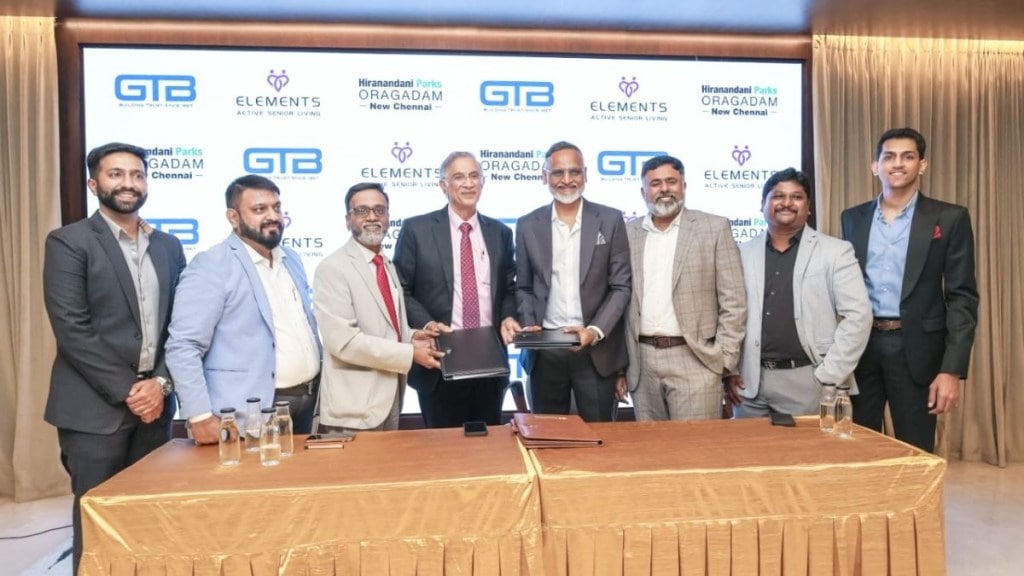Hiranandani Communities, part of the Niranjan Hiranandani Group, on Tuesday announced its foray into the senior living segment with the launch of ‘Elements’ at Hiranandani Parks, Oragadam — an integrated township in Chennai. Developed in collaboration with GTB Developers, the 4.5-acre project has a development potential of one million sq. ft. and an estimated value of ₹300 crore. It will feature 400 residences across two phases, each comprising 2BHK apartments of around 700 sq. ft., priced from ₹60 lakh onwards.
“We have over 300 acres at Hiranandani Parks, Oragadam — 200 acres are fully developed, while the remaining 100 acres are available, including for the senior living project,” Niranjan Hiranandani, Founder & Chairman of Hiranandani Communities, told FE.
He added that the company is targeting a topline of around ₹4,000 crore from developing the 100-acre space in the next three-four years. This could be a mix of industrial warehousing, senior living, regular apartments, serviced apartments, or even hostel accommodations.
According to Hiranandani, senior living is a “logical extension” as India’s senior living market is growing rapidly, driven by a rising population of retirees seeking independence and community-oriented living.
Greenbase Industrial and Logistics Parks, a 50:50 joint venture between the Hiranandani Group and US-based private equity firm Blackstone, is also located in Oragadam — home to major automotive and ancillary firms such as Renault Nissan Automotive India, Daimler India, and Apollo Tyres.
The company has plans to develop 16 million sq. ft. of industrial parks across India, of which 6 million sq. ft. is currently operational in Chennai, Pune, and Nashik. “Our pan India industrial park footprint should go over 20 million sq ft driven by demand for Grade A warehouses from manufacturing and e-commerce players,” Hiranandani said.
Hiranandani noted that the real estate sector is witnessing a phase of consolidation. “In all my 40 years in real estate, I never thought consolidation would happen, but it is now taking place in a big way,” he said.
He explained that earlier, anyone could enter real estate without the financial capability to sustain it. However, The Real Estate (Regulation and Development) Act, 2016 (RERA) has changed that. Developers now need to disclose project details, establish clear legal titles, and obtain approvals before advertising or selling. They must also maintain an escrow account for 70% of collections and provide detailed budgets. “As a result, financially weak players have been slowly eliminated, leading to consolidation,” he said.
According to him, in the Mumbai Metropolitan Region, the number of developers has dropped from around 18,000 to about 11,000 since the introduction of RERA.
On the recent GST rate cuts, Hiranandani said they will provide relief to the real estate sector. Especially, the cut from 28% to 18% on items like cement and steel is a direct benefit. “The impact will be more visible in affordable housing than in luxury housing because the benefit of lower construction costs is greater there,” he added.
